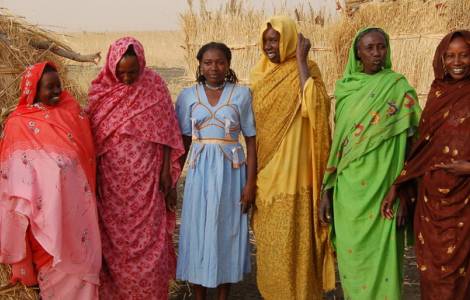
Internet
Karthoum (Agenzia Fides) - Sudanese women rights centres launched the Women's Initiative and Building Trust campaign to combat violence against women, against the backdrop of activities against tea sellers in Khartoum. The campaign The campaign lasted 16 days and ended yesterday 10 December and shed more light on the issue of gender-based violence while raising efforts to combat the problem in Sudan.
The Sima Centre for Training and Protection of Women and Children's Rights, the Gender centre, Sobat, Asimat, and Alaq participate in the campaign. They will host a number of activities and events.
The Sima Center in Khartoum has denounced the fact that female genital circumcision and domestic violence have still not been criminalised in Sudan. "The campaign is aimed at ending sexual, social and economic violence against women", said the head of Sima, in a note sent to Fides, and also added that sexual violence mainly concerns the female gender.
Regarding the 'economic violence', the activists pointed to the recent imposition of fines against tea sellers in Khartoum. Street tea sellers are usually women, and their numbers are estimated to run up to more than 8,000 sellers. In the past years the public order police in the Sudanese capital have waged campaigns of confiscations or evictions.
Among the main violence reported by women in the country are marital or family violence, genital mutilation, early or forced marriages, sometimes mass rape, sexual exploitation by employers or within the trafficking circuit, other forms of exploitation and physical, psychological and economic violence.
In a study published in 2016 by the economic expert Hassan Abdelati, General Secretary of the Sudan National Civic Forum found that 88.6 percent of the tea sellers in Khartoum are either displaced or migrants from rural areas. In the study, Dr Abdelati asserts that the tea sellers’ sector is growing because of inflation, war, difficult economic conditions, illiteracy, and poor education standards among the women. (AP) (Agenzia Fides, 11/12/2017)